Introduction
ChatGPT has taken over the AI world since its launch. Businesses are eager to bring similar AI capabilities of ChatGPT into their applications and websites.
If you think that is not possible then know that AI is for everyone. With the right partner, creating your own customized ChatGPT clone is within reach.
According to an MIT Sloan study, up to 65% of a typical AI system's value comes from the underlying training data, not just the algorithms. This data barrier makes building a ChatGPT clone from the ground up an uphill climb. However, solutions exist to shortcut the process.
Rather than dedicating extensive resources towards an owned chatbot engine, partnering with AI specialists allows you to focus on your conversational UI and unique use cases.
With the proper training data and fine-tuning, you can match ChatGPT's capabilities in a fraction of the time. Don't start from zero - build on existing AI foundations and let your ChatGPT clone take flight.
So continue reading to how to create a custom ChatGPT clone.
What is ChatGPT?
ChatGPT is breaking barriers in conversational AI. This game-changing system can converse naturally on virtually any topic, understand context, and generate remarkably human-like responses.
It makes complex conversations accessible to machines for the first time. Backed by massive datasets and advanced deep learning, ChatGPT delivers stunningly articulate, nuanced dialogue.
With its ability to explain concepts, admit mistakes, and reject harmful requests, ChatGPT represents a profound leap forward in safe artificial intelligence.
What is ChatGPT Clone?
A ChatGPT clone is an AI chatbot that aims to replicate the natural language capabilities of OpenAI's ChatGPT model. Developers create clones by training machine learning models on large text datasets to generate human-like conversational responses.
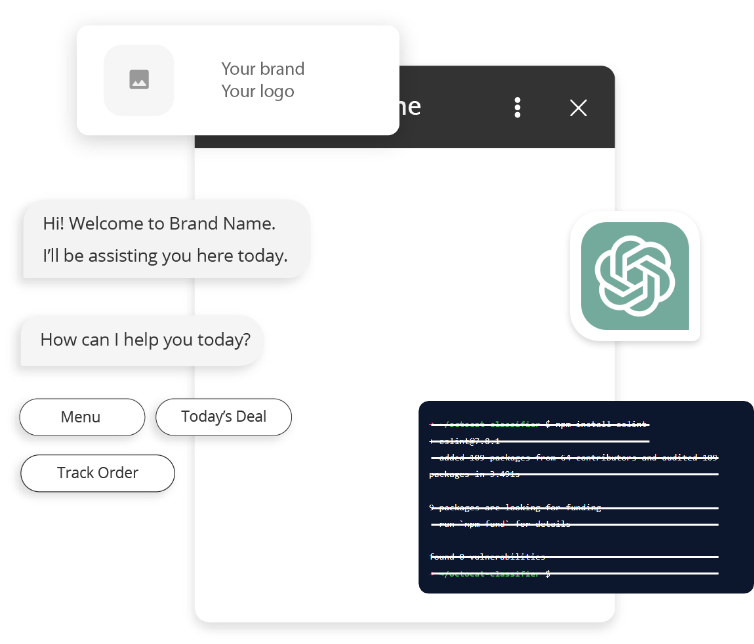
A custom ChatGPT clone entails building a unique conversational AI chatbot that is tailored to specific business needs. It leverages the core natural language processing technology of ChatGPT. But it is customized through specialized training data and algorithms to deliver more relevant and purpose-built chatbot experiences.
The goal of a custom clone is to provide an AI assistant that sounds natural while meeting unique requirements.
Suggested Reading:
Mastering NLP: Key to Customize ChatGPT Clone Development
Now, let's talk about the powerhouse behind creating a custom ChatGPT clone that truly stands out. It all comes down to mastering NLP.
Natural Language Processing is the backbone of chatbot development. It enables the chatbot to understand and respond to human language in a way that feels natural and intuitive.
To build a Custom ChatGPT Clone, you need to dive deep into the world of NLP. Understand the nuances of language, and learn about sentiment analysis, entity recognition, and language generation. The better you grasp these concepts before building a Custom ChatGPT Clone, the more powerful and effective your chatbot will be.
The Power of Sentiment Analysis
One crucial aspect of NLP is sentiment analysis. The chatbot can understand the emotions behind a user's message.
By analyzing the sentiment, your chatbot can respond with empathy and provide appropriate support. Whether it's a frustrated customer or an excited student, your chatbot can adapt its tone and response accordingly.
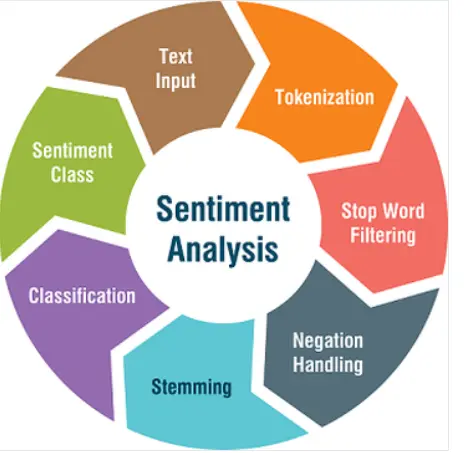
Entity Recognition: Making Sense of the Context
Another essential NLP technique is entity recognition. It involves identifying and extracting specific information from user queries.
This allows the chatbot to provide relevant and accurate recommendations.
Language Generation: Crafting Engaging Responses
Language generation is the art of creating human-like responses. It involves generating text that is not only grammatically correct but also contextually relevant and engaging.
By mastering language generation techniques, you can make your chatbot's responses feel more natural and conversational. It enhances the overall user experience.
Not only ChatGPT Clone, here are some other Solutions provided by BotPenguin
Why Creating a Custom ChatGPT Clone is important?
Here are some of the key reasons an organization may want to build a custom ChatGPT clone:
Customization for Specific Use Cases
Generic chatbots just don't make the cut for today's discerning businesses. To truly stand out in your industry, you need a chatbot that grasps the nuances of your niche and delivers tailored experiences.
That's where BotPenguin assists you. Our seasoned team of AI experts specialize in building custom ChatGPT clones designed specifically for your business needs. We dive deep to understand your industry, brand voice, and use cases to create conversational AI that feels like an extension of your team.
The result? Happy customers, reduced workloads, and seamless scalability.
Enhanced User Experience
Picture this: You're interacting with a chatbot that feels like a real human, understands your needs, and engages in meaningful conversations. That's the power of building a custom ChatGPT clone.

By personalizing the chatbot's responses, tone, and knowledge base, you can create an exceptional user experience that keeps your audience hooked. Say goodbye to generic, robotic interactions and hello to a chatbot that feels like a trusted friend.
Suggested Reading: Why you should use a white label chatbot as a business
Rise of ChatGPT Clones: Exploring Open Source Alternatives
Now, you might be wondering if creating a custom ChatGPT clone requires reinventing the wheel. Fear not! The rise of open-source alternatives has made the process more accessible than ever before.
The Power of Open Source
Open-source projects have gained immense popularity in recent years, and the world of AI is no exception.
Open-source ChatGPT clones provide a fantastic opportunity for developers and enthusiasts to explore, experiment, and contribute to the development of AI chatbots.
These projects often come with pre-trained models, libraries, and resources that can kickstart your journey into creating a custom ChatGPT clone.
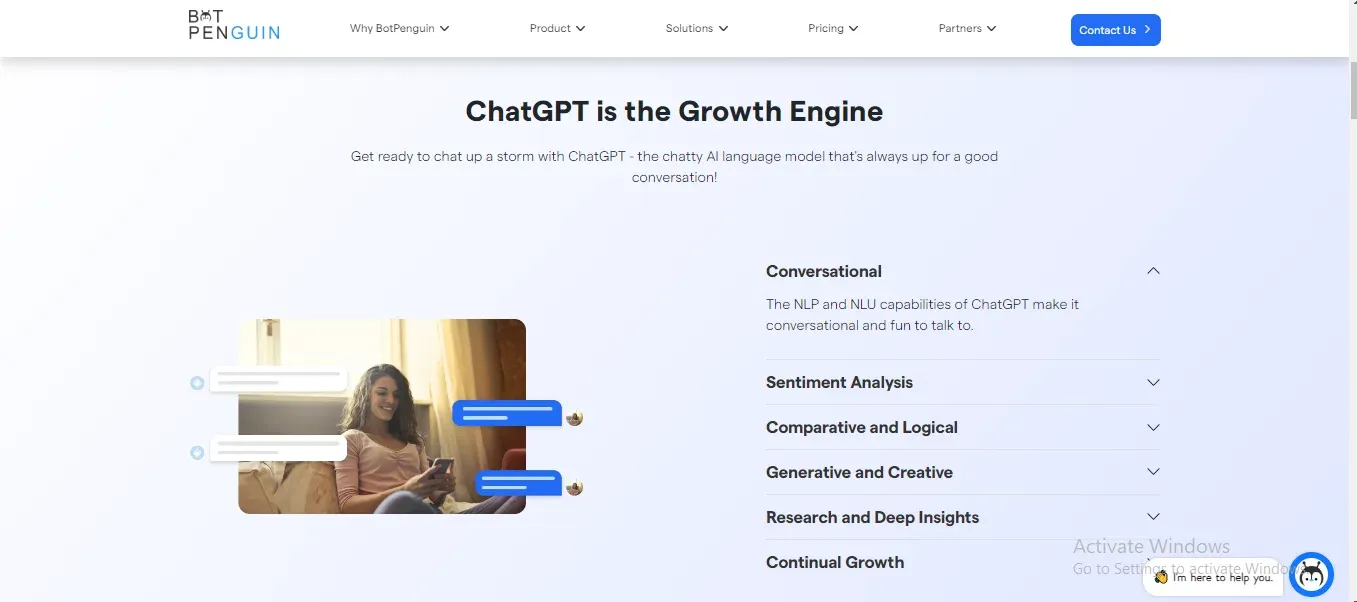
Exploring Different Alternatives
When it comes to open-source ChatGPT clones, you're spoiled for choice. Let's take a quick tour of some popular alternatives:
GPT-Neo
GPT-Neo is an open-source conversational AI project aiming to match ChatGPT's capabilities. It provides pre-built language models you can customize by fine-tuning your data.
GPT-Neo offers flexibility to tailor the models as needed for different use cases. You have full control to experiment and mold the chatbot to suit your needs.
OpenAI Codex
Leveraging the might of GPT-based AI, OpenAI Codex is an open-source library for creating advanced applications like chatbots and code generators. It empowers developers to build the next generation of AI-powered solutions.
With Codex, you can tap into the awesome potential of language models while exercising complete creative freedom. The possibilities are endless for groundbreaking innovations with this technology at your fingertips.
Embracing the Open-Source Community
One of the most significant advantages of open-source ChatGPT clones is the vibrant community that surrounds them. Developers from all around the world come together to share ideas, collaborate on projects, and contribute to the improvement of these open-source alternatives.
By joining this community, you gain access to a wealth of knowledge and support that can propel your custom ChatGPT clone to new heights.
Who Can Benefit from Creating a Custom ChatGPT Clone?
The possibilities are vast for organizations that want to bring conversational AI tailored to their unique needs and industry through a custom-developed ChatGPT clone
Here are some examples of organizations and use cases that could benefit from a custom ChatGPT clone:
Businesses and E-commerce
Building a custom ChatGPT clone can change your customer support by providing instant and personalized assistance.
It's like having a virtual assistant that can handle customer queries, provide product recommendations, and even process orders seamlessly.
Educational Institutions
Education is another sector that can greatly benefit from a custom ChatGPT clone. Imagine having a chatbot that can answer student questions, provide study resources, and even offer personalized tutoring.
It can enhance the learning experience, provide instant feedback, and assist students in their educational journey.
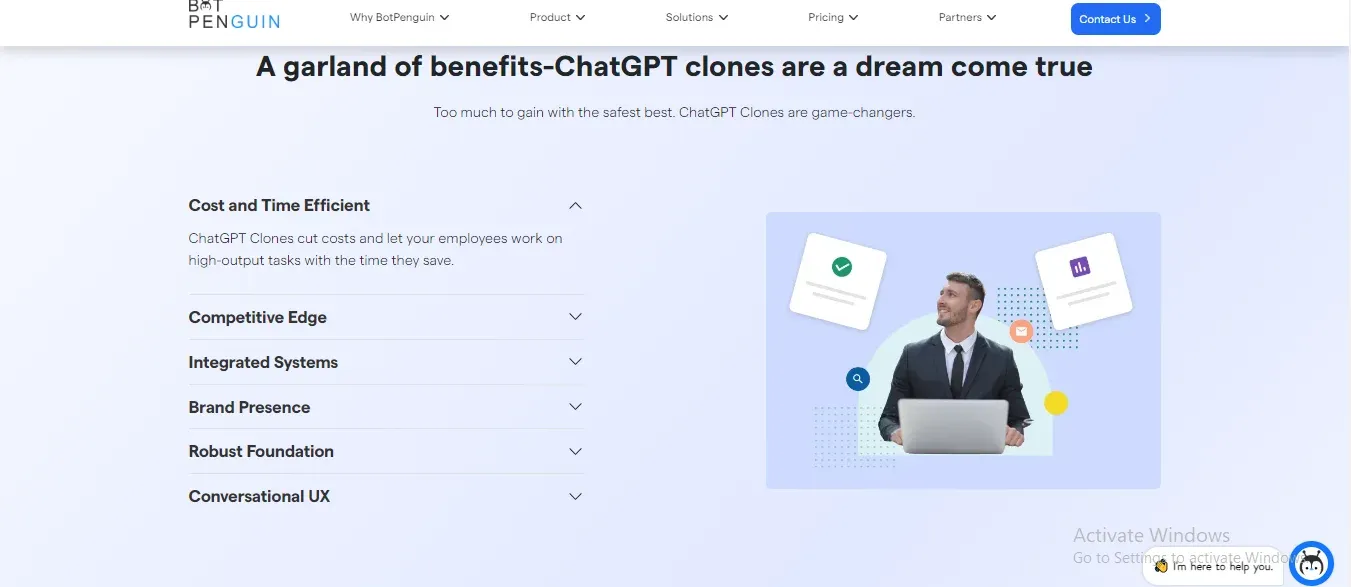
Healthcare and Telemedicine
Building a custom ChatGPT clone can play a significant role in patient engagement and support. From answering common medical questions to providing medication reminders, a chatbot can assist patients in managing their health and well-being.
However, it's important to address ethical considerations and privacy concerns to ensure the safe and responsible use of AI in healthcare.
At BotPenguin, we leverage the latest techniques like prompt engineering and transfer learning to develop advanced custom clones. Your chatbot will feel Natural and Intuitive, providing Expert Responses tailored to your domain.
How to Create a Custom ChatGPT Clone?
Here is an overview of the key steps to creating a custom ChatGPT clone:
Step 1
Define the goals and intended capabilities that will make your chatbot unique.
Step 2
Assemble relevant conversational data like support transcripts, documents, and content related to what you want the chatbot to handle.
Step 3
Obtain a foundation language model like GPT-3 and license the model for commercial use in your clone.
Step 4
Fine-tune the base model on your collected conversational datasets using machine learning.
Step 5
Develop wrappers and an interface for the model using Python/TensorFlow and tools like Hugging Face.
Step 6
Program conversational logic, workflows, and integrations tailored to your chatbot use cases.
Step 7
Rigorously test the chatbot with diverse inputs and interactions to identify inconsistencies.
Suggested Reading:
Mastering NLP: Key to Customized ChatGPT Clone Development
Step 8
Refine the training process through robust QA until the chatbot reliably meets thresholds.
Step 9
Deploy the chatbot API and database backend on scalable cloud infrastructure.
Step 10
Build and integrate smart front-end conversational interfaces for web, mobile, etc.
Step 11
Monitor chatbot usage to further improve contextual responses through reinforcement learning.
Step 12
Manage evolving regulatory compliance for responsible AI as it applies to your clone.It's a complex process requiring substantial data, engineering, and AI talent. Partnering with experienced AI developers can make creating an effective custom ChatGPT clone more achievable.
Challenges and Considerations
Here are some key challenges and considerations when developing a custom ChatGPT clone:
Data Collection and Training
To create a custom ChatGPT clone, you need a substantial amount of data to train your model. Additionally, ensuring the quality and diversity of the data is crucial to avoid biases and improve the chatbot's performance.
Ethical and Privacy Concerns
As with any AI technology, ethical considerations and privacy concerns should be taken into account. It's important to ensure that the chatbot respects user privacy, handles sensitive information appropriately, and adheres to ethical guidelines.
Transparency in how the chatbot operates and handles user data is essential.
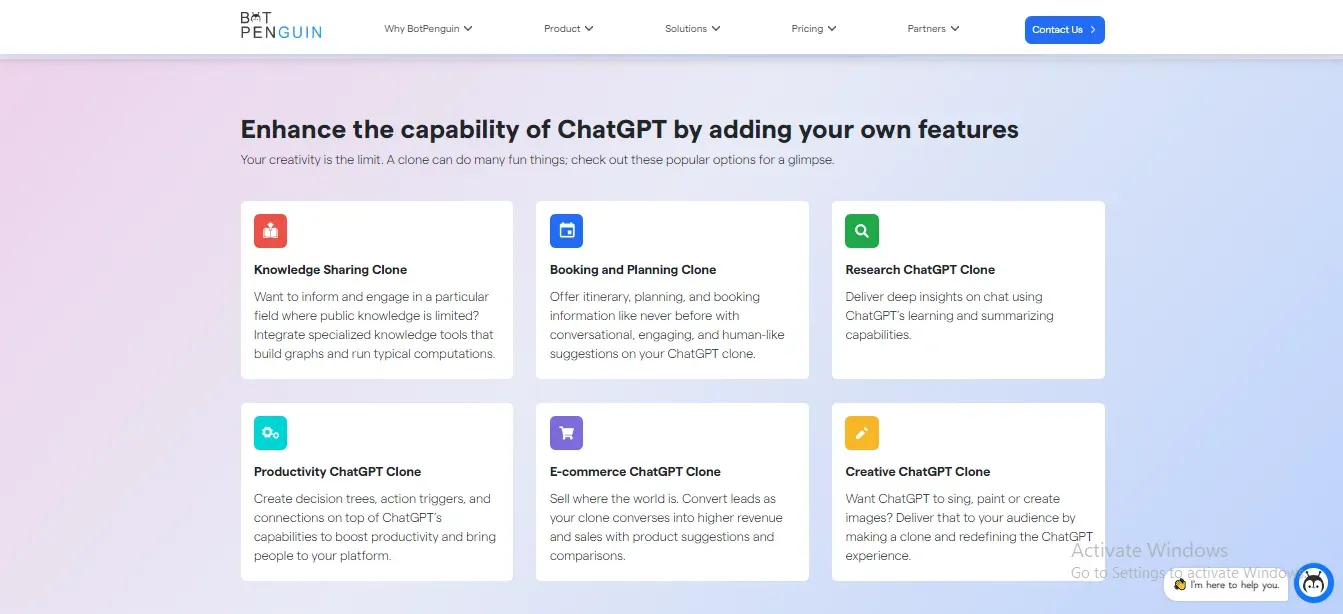
Maintenance and Updates
Creating a custom ChatGPT clone is not a one-time task. It requires ongoing maintenance and updates to keep up with changing user needs and technological advancements.
Regular monitoring, bug fixes, and improvements are necessary to provide a seamless and satisfying user experience.
User Feedback and Iteration
User feedback plays a crucial role in refining and improving the chatbot's performance. Actively seeking user feedback and iterating on the chatbot's responses based on that feedback is essential.
This iterative process helps in enhancing the chatbot's accuracy, understanding, and overall user satisfaction.
Conclusion
ChatGPT has captivated the world by demonstrating the impressive potential of conversational AI. But for most businesses, attempting to build a fully custom clone from scratch is impractical.
As one Harvard Business Review analysis found, purchasing access to proven AI through licensing or APIs delivers an average 30% higher ROI compared to owning custom AI.
This is where leveraging the expertise of an established AI specialist like BotPenguin pays dividends.
BotPenguin's elite teams can provide the conversational data training, NLP optimizations, and continuous model improvements needed to develop a ChatGPT clone tailored to your use cases in a fraction of the time and cost.
With solutions built on proven platforms, your ChatGPT clone can reach production quickly and evolve through ongoing enhancement. Don't leave conversational capabilities up to chance - partner with a company that has optimized thousands of hours of ChatGPT interactions for the enterprise.
Let BotPenguin make your ChatGPT aspirations a reality!
Frequently Asked Questions (FAQs)
What is a ChatGPT clone?
A ChatGPT clone is a customized version of the ChatGPT model developed by OpenAI. It is trained to understand and respond to user queries in a specific domain or industry.
How is a custom ChatGPT clone different from a generic chatbot?
A custom ChatGPT clone is tailored to meet the specific needs of a business or organization. Meanwhile a generic chatbot is designed to handle a wide range of queries without specialization.
Can I build a custom ChatGPT clone without any coding experience?
Creating a custom ChatGPT clone requires some level of coding knowledge, particularly in natural language processing (NLP) and machine learning.
However, there are user-friendly tools and platforms available that can simplify the process of building a custom ChatGPT clone.
What data is needed to train a custom ChatGPT clone?
To train a custom ChatGPT clone, you need a substantial amount of data related to the specific domain or industry. This can include customer interactions, support tickets, or existing chatbot conversations


